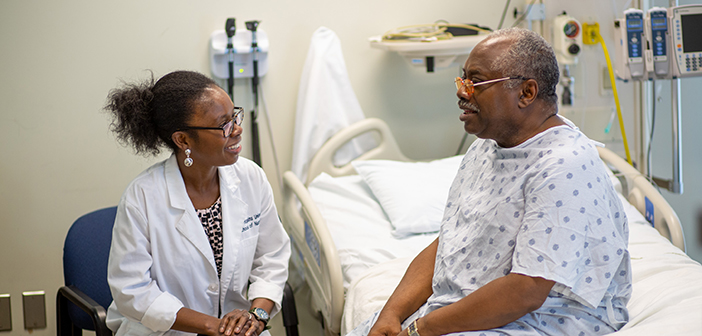It’s no surprise that nursing was voted as most trusted to improve the U.S. health care system in a recent survey conducted by The New York Times, the Commonwealth Fund, and the Harvard T.H. Chan School of Public Health. I say this not because I’ve been a registered nurse since 1980 and have seen the amazing work of nurses worldwide, or because I have the humble privilege of leading the No. 1 school of nursing in the country.
I say this because, in essence, the public has been telling us this very thing for nearly 17 years in a row. Year after year, the Gallup poll reports that nursing is the most trusted profession among Americans for its honesty and ethical standards. We even surpass our colleagues in other areas of health care, and widely outpace well-trusted professions like teachers and clergy.
Trust happens when time after time you show up and live up to your word and your responsibility. And that’s exactly what nurses do. So, while it isn’t unexpected, it does indicate to me that there is perhaps an even deeper level of trust that the public is placing in our profession. One that goes beyond merely being able to take “good care” of patients.
That trust is well placed. Much of nursing surpasses daily patient care to a broader and more influential role where nurses are leading entire health systems, developing policies that improve them, and advocating for legislation that is based on evidence rather than politics. And nurses are especially good in these roles because as front line problem solvers, they have the advantage of seeing what fails and what actually works for patients and their families. They also have a fundamental commitment to treat every person with dignity, respect, and compassion regardless of their location, background, or status.
The public can be encouraged by the fact that nearly 40,000 nurses across the U.S. are currently being doctorally trained with PhDs and DNPs (Doctor of Nursing Practice degree), and are leading the way when it comes to developing evidence based practices that will improve the infrastructure of our country’s broken health care system.
At Johns Hopkins, a leading example is Kevin Sowers—a nurse who is president of the health system, vice president of Johns Hopkins Medicine, and manager of the institution’s multi-billion dollar budget. His plethora of abilities, knowledge, and experience have been refined by years of nursing, problem solving, and taking action. He, like so many other nursing leaders, are moving more and more into positions where they can address pressing health issues and look beyond disease treatment to prevention, examine economic and social factors that impact health, and ultimately improve the health of individuals, families, and communities. And their efforts are supported by nursing colleagues who testify on Capitol Hill and advocate for national health policy and reform in the best interest of the patient and not a political party or corporate health care entity.
If we ever want to fully achieve an accessible, affordable, quality health care system that actually helps and respects people, then we’ll need more nurses at the head table, in leadership positions in health systems, health care companies, research, and the legislative branch. Clearly, the American public trusts nurses more than anyone else to improve our healthcare system. And nurses are ready to deliver if given more of a chance.
 ABOUT THE AUTHOR: PATRICIA DAVIDSON @nursingdean
ABOUT THE AUTHOR: PATRICIA DAVIDSON @nursingdean
Patricia Davidson, PhD, MEd, RN, FAAN, is Dean of the Johns Hopkins School of Nursing. She is secretary general of the Secretariat of the World Health Organizations Collaborating Centers for Nursing and Midwifery, counsel general of the International Council on Women’s Health Issues, a member of Sigma Theta Tau International’s Institute for Global Healthcare Leadership Advisory Board, and a board member of the Consortium of Universities for Global Health. Follow her @nursingdean.

 You’re Welcome
You’re Welcome Nursing Named Most Trusted Profession for 22nd Consecutive Year
Nursing Named Most Trusted Profession for 22nd Consecutive Year Best of On The Pulse 2023
Best of On The Pulse 2023 From the Dean: Here & Now
From the Dean: Here & Now The Learning Collaborative: ‘I Think I Can, I Think I Can …’
The Learning Collaborative: ‘I Think I Can, I Think I Can …’







